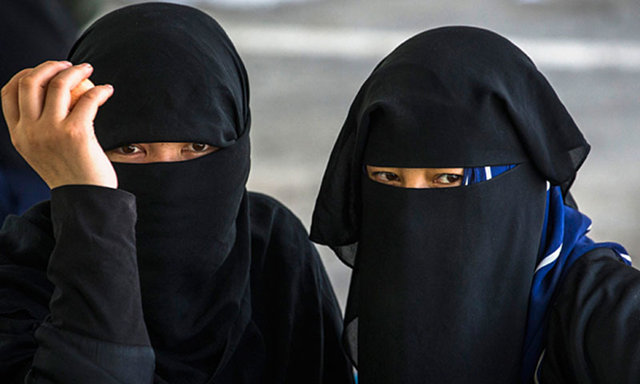EU court allows companies to ban wearing headscarf at workplace

The European Court of Justice (ECJ) ruled on Tuesday that employers can ban staff from wearing visible religious symbols, including headscarves. "An internal rule of an undertaking [firm] which prohibits the visible wearing of any political, philosophical or religious sign does not constitute direct discrimination," the court said.
The ECJ was ruling on a case dating to 2003 when Samira Achbita, a Muslim, was employed as a receptionist by G4S security services in Belgium. At the time, the company had an "unwritten rule" that employees should not wear any political, religious or philosophical symbols at work, the ECJ said.
In 2006, Achbita told G4S she wanted to wear the Islamic headscarf at work but was told this would not be allowed. Subsequently, the company introduced a formal ban. Achbita was dismissed and she went to court claiming discrimination.
The court's ruling also covered a French IT consultant who worked for the French company Micropole. She was told to remove her headscarf after a client complained and refused to comply, which led to her dismissal.
"However, in the absence of such a rule, the willingness of an employer to take account of the wishes of a customer no longer to have the employer's services provided by a worker wearing an Islamic headscarf cannot be considered an occupational requirement that could rule out discrimination," the court added.
France, the Netherlands and Belgium are among three European countries which have bans on the Islamic niqab or burka. France was the first country in Europe to ban Islamic face veils in public. Meanwhile, a majority of the electorate in the Swiss region of Ticino voted in favour of a ban on face veils in public areas in 2013. The ban came into force in 2016.
On the opposite hand, Switzerland’s upper house of parliament, last week, voted down plans to ban the niqab and the burqa in public places. The senate followed the recommendation of a commission on the subject which advised against implementing a ban nationwide, saying it was not necessary since so few people in Switzerland wear the veil. Such a ban could hurt tourism to the country, it added.

